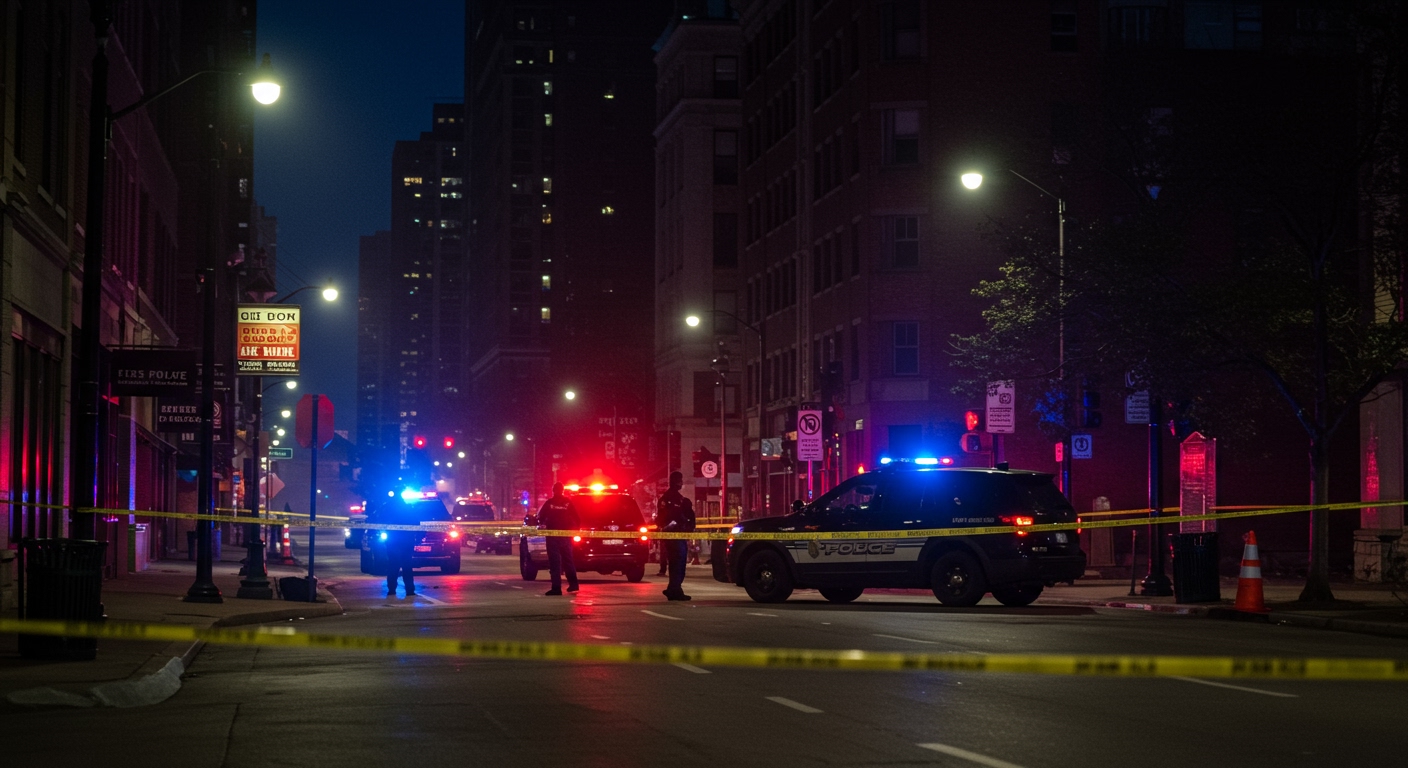The assassination of conservative activist Charlie Kirk has once again ignited a partisan firestorm, with leaders and commentators quickly assigning blame. This immediate rush to point fingers, experts warn, is not merely a symptom of deep political division but a dangerous catalyst that can propel the nation into a “spiral of violence.” This phenomenon, where acts of political violence are used to demonize opposing sides, risks creating a self-perpetuating cycle of unrest and further attacks.
The Immediate Aftermath of Kirk’s Assassination
Charlie Kirk, a prominent conservative organizer and ally of former President Donald Trump, was fatally shot on September 10, 2025, during a public event at Utah Valley University. The swiftness with which blame was cast, with President Trump immediately attributing the act to “the radical left” before a suspect was identified, highlights a troubling trend in American politics. Authorities later arrested Tyler Robinson, 22, of Washington, Utah, in connection with the shooting. While initial reports and court documents suggested Robinson had become “more political” and expressed negative views about Kirk, with investigators exploring possible motives including alleged ideological differences and his relationship with a transgender individual, the exact reasons behind the attack remain under scrutiny. Ammunition casings found near the scene reportedly bore inscriptions with anti-fascist messaging, adding layers of complexity to the unfolding investigation. Despite calls for calm from figures like California Governor Gavin Newsom and former Speaker Nancy Pelosi, the incident has amplified concerns about the escalating nature of political aggression.
Experts Sound the Alarm on the ‘Blame Game’
Political scientists and security experts are sounding a clear warning: the immediate assignment of blame along partisan lines after acts of political violence is a critical driver of further conflict. “What you’re seeing now is exactly how the spiral of violence occurs,” stated Robert Pape, a political scientist and director of the Chicago Project on Security and Threats at the University of Chicago. He describes the current era as one of “violent populism,” characterized by a historically high level of assassinations, attempts, and violent protests occurring on both the right and the left.
This “blame game” strategy, often amplified by political rhetoric that demonizes opponents as existential threats, creates a “dangerous feedback loop,” according to experts like Rachel Kleinfield, a senior fellow at the Carnegie Endowment for International Peace. This cycle incentivizes politicians to use extreme language, which in turn can empower unstable individuals to commit acts of violence.
A Rising Tide of Political Violence
The assassination of Charlie Kirk is not an isolated event but rather the latest marker in a disturbing upward trend of politically motivated attacks in the United States. Data from organizations like the Center for Strategic & International Studies (CSIS) and the Government Accountability Office (GAO) reveal a significant surge in such incidents. CSIS noted that attacks on politicians and government staff have skyrocketed since 2016, with nearly half driven by partisan hate. A GAO review found domestic terrorism incidents rose 357% from 2013 to 2021, and U.S. Capitol Police have reported record highs in threats against members of Congress since 2017.
This escalation is fueled by a confluence of factors, including intense polarization, the proliferation of misinformation, and the ease with which individuals can self-radicalize through online engagement—a trend experts refer to as the “ungrouping” of political violence. The landscape of political violence has also evolved, with attacks no longer solely attributable to organized groups but increasingly stemming from “lone offenders” motivated by online radicalization or personal grievances.
The Role of Rhetoric and the Call for De-escalation
The incendiary rhetoric employed by political leaders is a significant factor in normalizing and potentially instigating violence. Research suggests that such language can make violence more likely, give it direction, and increase fear within targeted communities. This has led to widespread concern, with many Americans believing that heated political language poses a risk of sparking violence.
In the wake of Kirk’s killing, many prominent figures have urged for restraint. House Speaker Mike Johnson, along with Democratic leaders, has called for de-escalation. Utah Governor Spencer Cox has made an impassioned plea for Americans to find an “off-ramp” from political violence, using Kirk’s assassination as a potential inflection point for national healing. Experts like Robert Pape advocate for politicians to actively condemn violence from their own sides and, crucially, to engage in joint statements and initiatives with members of opposing parties to foster a less hostile political climate.
The cycle of political violence, characterized by immediate blame and escalating rhetoric, poses a significant threat to democratic stability. The nation’s current trajectory, marked by increasing hostility and a willingness to demonize political opponents, underscores the urgent need for a conscious shift towards de-escalation and a more responsible public discourse. The latest news of this nature serves as a stark reminder that the way political disagreements are handled can have dire, and potentially deadly, real-world consequences, making this an important headline for the current era.














